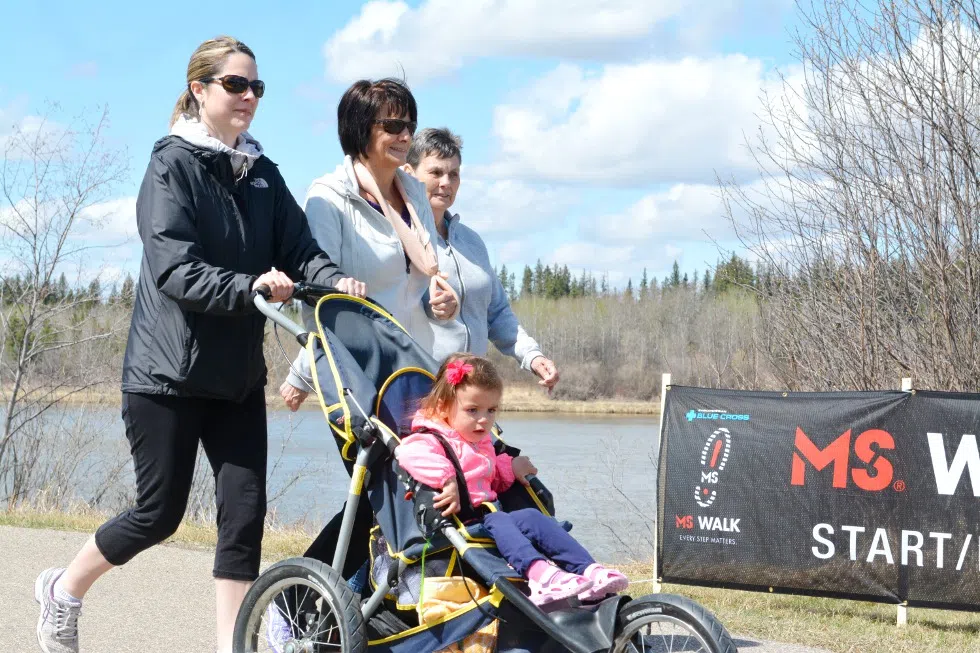
Support key for those living with MS
The sun glinted off of the North Saskatchewan River, which acted as the backdrop to Sunday’s Multiple Sclerosis (MS) Walk in Prince Albert.
More than 30 people took part in the walk, starting out eastward from Elks Lodge in the East Flat, along the Rotary Trail.
Among them was Susan Bain, who has been living with MS since 1987. She’s a founding member of a support group for people living with the disease in Prince Albert. The group was founded 27 years ago and they meet at Mont St. Joseph Home.
Most of the people in the support group, she said, have an understanding of what each other is going through.


